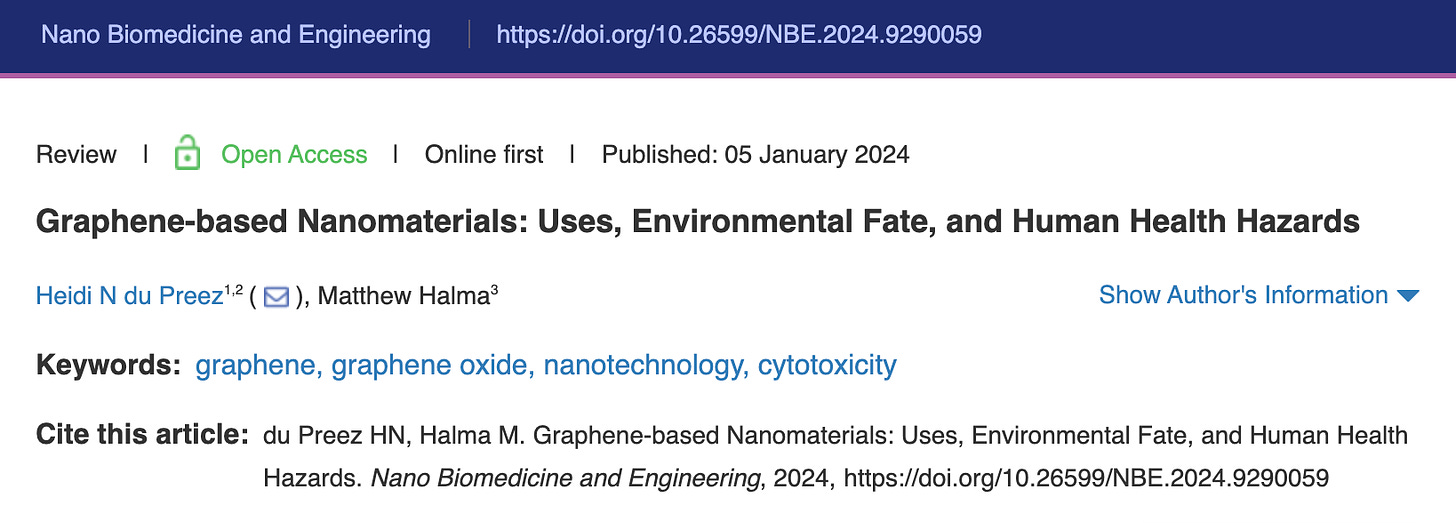New Peer-Reviewed Paper Highlights Dangers of Graphene Nanomaterials
The paper also empowers those looking to remove graphene contamination from biological systems.
A new peer-reviewed scientific journal article on the dangers of graphene nanomaterials is out now in the journal Nano Biomedicine and Engineering and is currently the most accessed article of that journal. The article summarizes the different applications that graphene nanomaterials have been introduced into—including the food industry, biomedicine, aerospace, and materials science.
Graphene nanomaterials have many routes and mechanisms of toxicity, which are explored in the article. Importantly, the article also explores how to degrade graphene oxide, which can be accomplished through several mechanisms.
This article empowers anyone looking to remove graphene contamination from biological systems, enabling the development of ecosystem bioremediation services and mechanisms for removing graphene nanomaterials from the human body if necessary. Other medical professionals may build off of this summary. It must be stressed that this is preliminary scientific work and not medical advice.
Potential agents for the degradation of graphene nanomaterials include humic acid, Shilajit, kaolin, and bentonite nanoclay. Our bodies also have the capacity to degrade graphene oxide via the enzyme eosinophil peroxidase, which is produced by eosinophils, a type of white blood cell, in the presence of low concentrations of hydrogen peroxide and sodium bromide. Myeloperoxidase (MPO) is produced by neutrophils in the presence of low concentrations of hydrogen peroxide, and can also degrade graphene oxide. Horseradish peroxidase and nitric oxide can also degrade graphene oxide.
The focus of this work remains solutions-focused—at the World Council for Health, we say, “Be a warrior, not a worrier”. This article contributes to those concerned about the health impacts of graphene nanomaterials and how to clean them up from our environment and bodies. We are grateful for your support of the World Council for Health, which allows us to perform original research.
If you find value in this Substack and have the means, please consider making a contribution to support the World Council for Health. Thank you.






I couldn't get the "new peer-reviewed scientific journal article..." to open, FWIW.
Let's face it, you take these FALSIFIED FRAUDULENT "COVID".. "SHOTS".. you basically DEAD. That's being diplomatic.